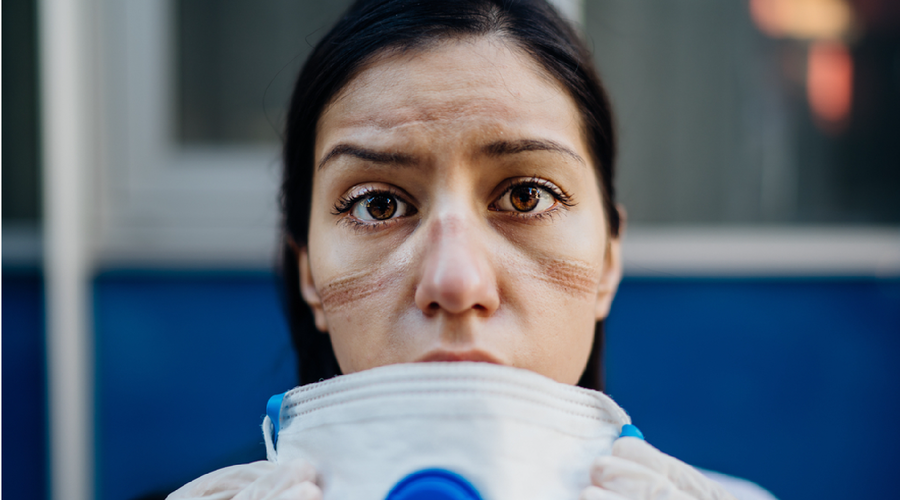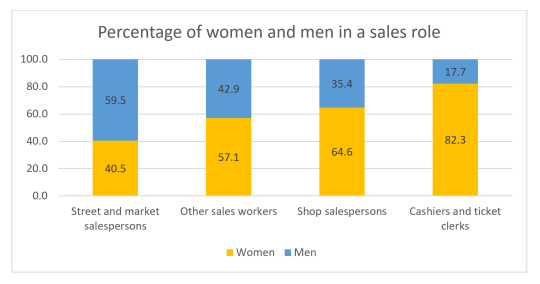
To contain the virus, millions of people were confined to their homes, either unable to work or continuing virtually. This excludes workers categorised as ‘essential’, who continued their jobs on the frontline of the pandemic. This group includes workers in the health and care sector, victim support services, education, supermarkets, pharmacies and banks. EIGE’s research shows that women are over-represented in many of these sectors.
Healthcare workers
Although both women and men working in this sector are exposed to the virus, women healthcare workers have made up a higher share (72 %) of infected healthcare workers globally. As women make up 76 % of healthcare workers [1] in the EU, this is hardly surprising. However, men healthcare workers have made up the largest share of deaths from the virus (71 %).
During the peak of the pandemic, healthcare workers faced long working hours and reported troubles reconciling work and family life. Several studies have reported increased stress, anxiety, and depressive symptoms among healthcare workers in EU countries.
Care workers
The care sector has also been highly affected. The proportion of women is very high in care occupations, with EIGE’s research [2] finding that about 76 % of the 49 million care workers [3] in the EU are women. These figures are probably underestimated due to the large share of undeclared employment, especially in the domestic care sector.
In 2018, women made up:
- 93 % of child care workers and teachers’ aides
- 86 % of personal care workers in health serviceS [4]
- 95 % of domestic cleaners and helpers[5]
These professions are some of the most undervalued and under-paid jobs in the EU. More than 50 % of personal care workers in health services are among the 30 % lowest paid workers. Domestic cleaners and helpers mainly work part-time (69%) and more than half have a migrant background (55%). They are often irregularly employed with low wages (82 % of domestic cleaners and helpers are among the 20 % lowest paid) and poor working conditions.[6]
When it comes to providing formal long-term care in people’s homes [7], it is estimated that 4.5 million out of 5.5 million workers in the EU are women [8].
Carers provide different types of care depending on their qualifications and job functions. They might be providers of nursing care and carry out basic medical services. They could be personal carers, helping people to eat, bathe or dress. Or they could be domestic workers carrying out tasks such as cooking and cleaning.
Most of the workers providing home-based professional care to older people and people with disabilities are women. Across the EU, it’s estimated that of these 1.8 million carers, about 83% are women [9].
Other essential jobs
There are also several other people working in other essential jobs that require contact with others, such as supermarket cashiers, who face greater exposure during the Covid-19 pandemic. Women are especially affected as they make up 82 % of all cashiers in the [10].

What policymakers need to know
Gender mainstreaming in crisis situations is crucial to ensure that the different experiences faced by women and men are recognised and addressed. It is important to take into account the following:
- Gender segregation in the labour market leads to different levels of exposure to Covid-19 for women and men.
- Increased challenges to occupational health and well-being of women in caring professions need to be recognised.
- Caring professions are among the most underpaid jobs in the EU.
- It is crucial to consult women and have gender-balance in decision-making during crisis situations and beyond.
For more information
EIGE’s Gender Statistics Database
EIGE (2021) Gender inequalities in care and consequences for the labour market